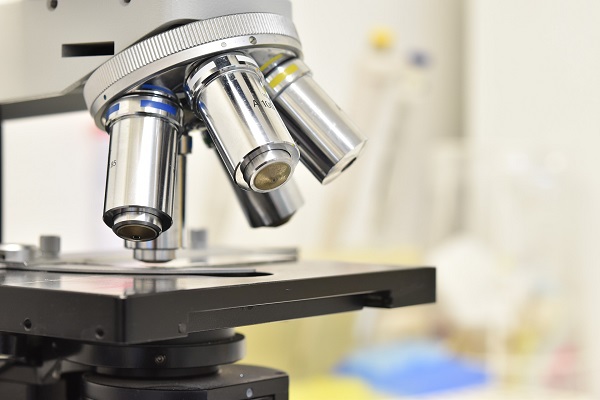When you pursue a master’s degree in pathology, one of the highest paying master’s degrees, you should expect to complete advanced coursework in medical sciences. The curriculum of an accredited program, which typically spans two years of challenging full-time study and hands-on work, includes both a classroom component and a clinical rotation component.
The Importance of Choosing an Accredited Pathology Assistant Program
For an aspiring pathologists’ assistant, the program you choose is of critical importance. The only way to prepare for this career path is by completing a degree program that is accredited by the National Accreditation Agency for Clinical Laboratory Sciences (NAACLS), according to the American Association of Pathologists’ Assistants. Since the NAACLS only accredits a very small number of programs – a total of 14 across the United States and Canada, as of 2020 – your options for where you can go to school are limited. Earning a degree from a program without accreditation won’t make you eligible for professional certification, which will hold you back in your future career, so accreditation in this field really matters.
The NAACLS accredits considerably fewer programs for pathologists’ assistants than for clinical laboratory roles like phlebotomist and medical laboratory scientist, but there are even fewer accredited programs for clinical assistants and cytogenetic technologists.
Didactic Coursework in a Master’s in Pathology Program
The first year of your master’s in pathology studies consists of didactic coursework, or learning that occurs through traditional teaching methods in the classroom, lecture hall or laboratory. During this year, your time as a student may look somewhat similar to your undergraduate experience, with the main difference being the advanced level of your course content and the intensity of the academic program.
Most of the didactic coursework you will complete as an aspiring pathologists’ assistant has to do with science and medicine. Studies in medical terminology are essential because you need to understand and be able to use correctly use the precise medical terms to describe the samples and your findings. You should also expect to take coursework in medical photography. Pathologists’ assistants must study anatomy, which refers to the structure of the body and its parts, and physiology, which focuses on how these structures work together to function normally and how dysfunction occurs. Studies in embryology focus on the development and disorders of embryos and fetuses in the womb.
Coursework in histology, the study of the microscopic structure of bodily tissue samples, is particularly relevant for pathologists’ assistants, who spend much of their time examining slides of samples through a microscope. Students also complete coursework in different areas of pathology, according to the American Association of Pathologists’ Assistants. In general pathology classes, like basic human pathology, students learn the foundations of practice in pathology. Systemic pathology coursework covers the application of those foundations to different systems in the body, such as the cardiovascular system, the respiratory system, the nervous system, male and female genital systems and more. Students in a pathologists’ assistant master’s degree program might take classes specific to clinical pathology, surgical pathology, autopsy pathology and pathogenic microbiology.
Although most coursework in an accredited pathologists’ assistant program covers science and medicine, these programs typically include at least some coursework in leadership and management and interprofessionalism, or collaboration between healthcare roles.
What to Expect During Your Clinical Year of Pathology Studies
IMAGE SOURCE: Pixabay, public domain
By the time you get to your second year of a master’s in pathology program, you are usually ready to move onto more hands-on instruction. This second year of graduate school usually consists of clinical rotations in hospitals affiliated with your graduate school, according to the American Association of Pathologists’ Assistants. You might also perform some of your rotations outside of hospitals, in medical examiners’ offices, outpatient facilities and other medical and healthcare settings.
Through these rotations, students learn what the different job duties for a pathologists’ assistant are in different work settings. Part of the benefit of doing clinical rotations is the opportunity to get a feel for what day-to-day work is like in different work environments and subspecialties of pathology. Some master’s degree programs for pathology assistants specifically include clinical rotation opportunities in forensic pathology, cancer research, cytopathology, hematopathology, digital pathology and pediatric pathology to equip students with an understanding of each of these different fields within the practice of pathology.
Your clinical rotation year of study may require some travel. Although you may be sent to rotations near your graduate school, some institutions are affiliated with hospitals all over the country, requiring you to travel to a faraway site and live there for several weeks.
Additional Resources
What Does Studying Pathology Mean?
What Does a Pathologists’ Assistant Do?
Is the Prerequisite Work for a Pathology Degree Similar to Preparing to Go to Med School?

